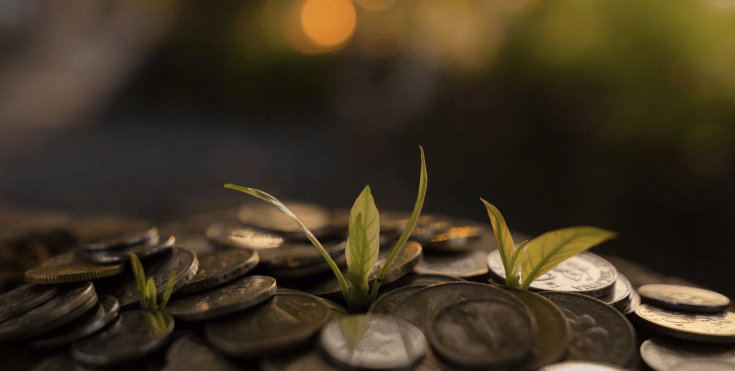Key learnings of financial instruments for the circular economy

On 1 February 2022, the Policy Learning Platform hosted a webinar on financial instruments for the circular economy.
With the Green Deal and the new European industrial strategy for a globally competitive, green and digital Europe, the transition of the economy towards a more circular approach has become an evidence for policy makers. Also, businesses are increasingly working on their business models and processes to reduce their environmental footprint and address increasing linear risks (scarcity of resources, unsure supply, volatility of prices…) by seizing circular opportunities. However, as it is the case for any significant transformation, the challenges for SMEs are still big and support is needed to minimise the investments risks.
The webinar presented some approaches on how regional and local authorities can adapt their funding frameworks to promote and foster the circular transition of the economy and which types of measures are used to foster the circular transition of businesses in general and SMEs in particular.
The first part of the webinar focussed on policy measures and funding instruments from Bologna (Italy) and Stuttgart (Germany). The second part of the webinar showcased practices aiming to foster business investment in circular economy models and reduce the risk for private and public financiers for investment in the circular economy.
You can watch the recording and access the presentations below.
Webinar recording
Webinar agenda
Moderation and concept by Luc Schmerber and Mart Veliste, Thematic Experts for SME competitiveness.
00:03:05 Opening and introduction by Luc Schmerber
00:11:25 Presentation on transversal approach across institutions and departments, by Marino Cavallo from the Metropolitan City of Bologna, Italy
00:26:55 Q&A: Given the different time scales, is there a clear alignment of actions and investments between the national circular economy agenda and the regional one?
00:28:50 Q&A: How does this aspect of governance apply to the regional level?
00:31:20 Q&A: What is included in the circular economy toolkit from the CESME project?
00:33:20 Q&A: What is the response of the industry so far in regards to the circular business models?
00:35:00 Presentation on dedicated funds, running aside conventional funding schemes by Hauke Diederich from the Stuttgart Climate Innovation Fund, Germany
00:46:20 Q&A: Where does the budget come from?
00:46:50 Q&A: What if there are no results?
00:49:00 Q&A: What is the legal form of this fund?
00:49:20 Q&A: What are the election criteria for the projects?
00:50:10 Q&A: What is the type of result you are paying for and how do you monitor them?
00:52:00 Q&A: Are you funding the projects 100%?
00:53:00 Q&A: Will there be another programme?
00:54:15 Q&A: How is the city excluded from the decision making process?
00:56:00 Presentations on necessary skills and tools by Kari Herlevi from SITRA, Finland
01:07:40 Q&A: Did you start with the businesses or with the citizens?
01:08:40 Q&A: How do you work with the citizens?
01:09:50 Q&A: Are there examples available of inspirational companies?
01:11:25 Q&A: Can you already see movement in the federations of value chains?
01:12:40 Q&A: Do you have any studies about the impact?
01:13:55 Presentation on sector-based multiple stakeholder approaches by Robert Algarra Alberto from Valencian Institute of Business Competitiveness, Spain
01:34:15 Q&A: Did you already observe impact?
01:36:12 Q&A: Are there any obligation constraints for companies?
01:38:28 Q&A: What would be your recommendation for regions establishing similar tools?
01:40:35 Q&A: Is the tool designed for separate sectors?
01:42:00 Recommendations and conclusions
01:46:00 Presentation about Interreg Europe and the Policy Learning Platform, by Elena Ferrario, Thematic Manager of the Policy Learning Platform
Key learnings
- From Marino Cavallo, Bologna Metropolitan Area, we have learned that circular economy has now been integrated into the economic and industrial strategies of many territories, especially in Italy. This requires a . Financial public instruments, such as grants and ty incentives, are important to trigger changes; they need to be accompanied by tools and communication / networking activities helping to increase operational commitment from businesses and consumers.
- From Hauke Diederich, City of Stuttgart, we have learned how municipal authorities can make an impact and generate high visibility for the circular transformation through . Using typical urban challenges such as urban planning, mobility, energy supply etc. as anchors for the projects funded helps create visibility through local pilot implementation of the solutions.
- From Kari Herlevi, SITRA, we learned that working with businesses federations and clusters on the
to understand and implement circular business opportunities and models can significantly contribute to leverage private businesses’ investment into circular business models. Kari also emphasized the importance of showcasing good practices from the industry to encourage further businesses to transform their business models and help financiers to understand better the respective funding requirements.Document
- From Roberto Algarra, IVACE, we learned that the funding opportunities for new circular business models, either through private or public financing institutions, can be leveraged by developing By bringing together actors from the industry, policy, technology and finance, a common understanding of the challenges and opportunities for a circular transformation in each sector can be achieved.
The speakers emphasized that technologies and financing might not be the major barriers for the circular transformation of the economy, but true understanding of the challenges ahead of us:
- One key to a faster and stronger circular transformation of the economy is the sensitisation and mobilisation of the citizens as consumers; they need to be empowered to become active promoters of a more circular economy.
- A significant effort in all educational levels, including vocational training, is also needed to speed up the circular transformation. This objective ensures that businesses will have the necessary skills to successfully transform their business models.